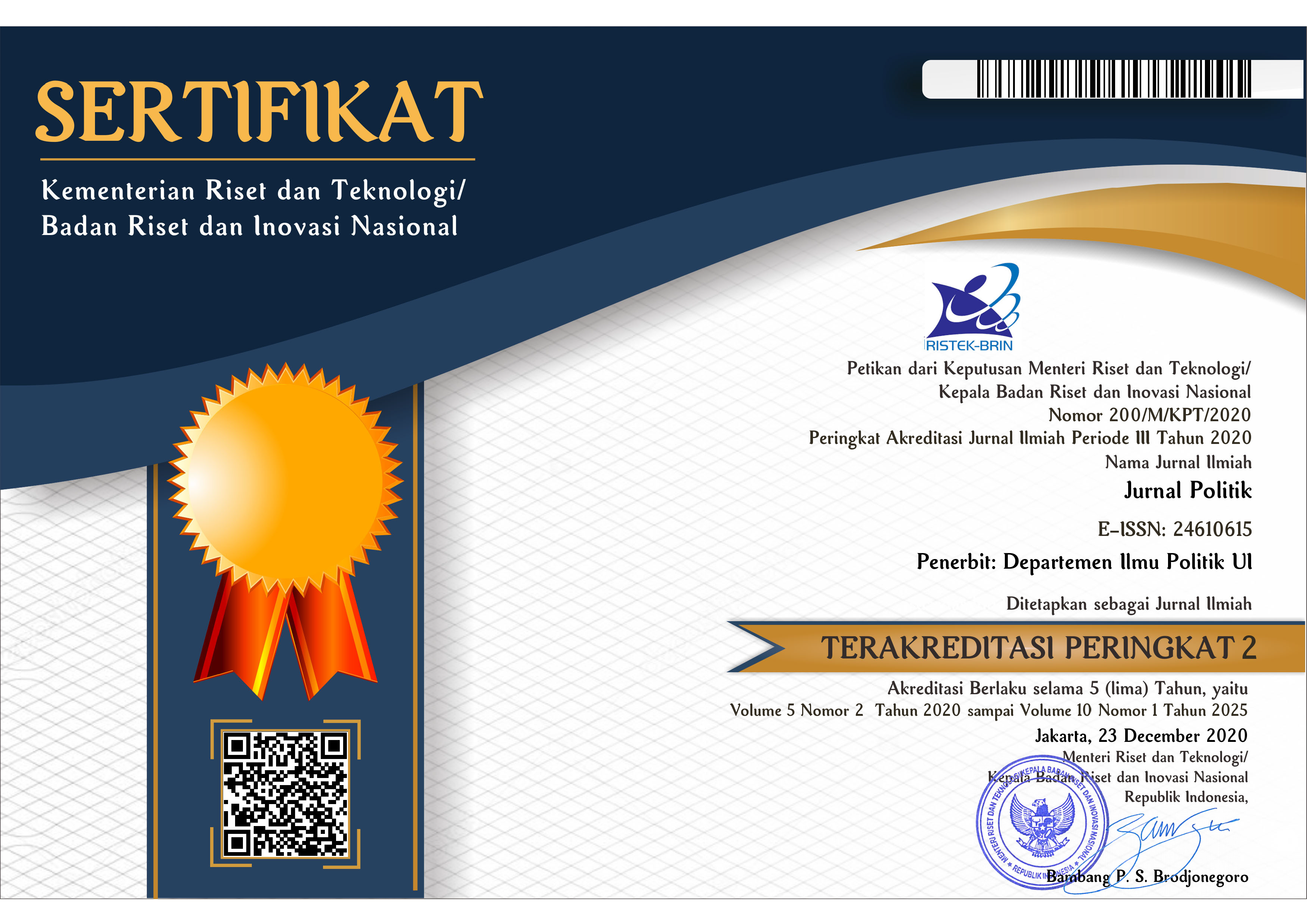Abstract
The existence of opposition party in Indonesian parliament after the reform era has been taking place since 2004, precisely since Megawati Sukarnoputri lost the presidential election and then declared herself and her party, Indonesian Democratic Party–Struggle (PDI-P) as an opposition party. After that, PDI-P attempts to perform as a functioning opposition to criticize the government’s policies in about ten years. Then, the candidates proposed mainly by PDI-P, eventually won the 2014 presidential election by overcoming the other candidates, Prabowo Subianto-Hatta Rajasa. After the defeat, Prabowo-Hatta formed the Red and White Coalition (RWC) to maintain their opposition to Joko Widodo-Jusuf Kalla government. Meanwhile, the current president is supported by the parties known as the Outstanding Indonesia Coalition (OIC). Although in their early existence, the coalition of opposition parties succeeded in conducting some roles, nevertheless the coalition cannot run their roles well. This article tries to answer the question of why the opposition parties cannot run their roles as opposition well after the 2014 Presidential Election. This article is written based on research applying qualitative approach. This article finds that the lack of oppositional roles is due to two.
Recommended Citation
Admojo, Tuswoyo
(2016)
"Peran Partai Oposisi di Parlemen Pasca Pemilu Presiden 2014,"
Jurnal Politik: Vol. 1:
Iss.
2, Article 4.
DOI: 10.7454/jp.v1i2.1123
Available at:
https://scholarhub.ui.ac.id/politik/vol1/iss2/4


